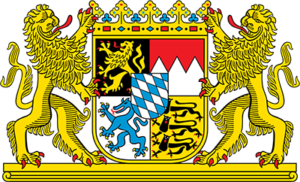15th IZB Biotech Press Lounge: The cocktail for medical progress
01.10.2022
At the networking event at the Innovation and Start-up Center for Biotechnology (IZB), players from the life sciences industry explained their strategies
Caption IZB Biotech Press Lounge on September 30, 2022:
Speakers of the Biotech Press Lounge September 30, 2022: Prof. Markus Lerch, Medical Director LMU Klinikum Großhadern; Moderator Anouschka Horn, Bayerisches Fernsehen; Dr. Peter Hanns Zobel, Managing Director IZB; Chantal Friebertshäuser, Managing Director MSD Germany; Greg Fanning, Managing Director SCG Cell Therapy
Martinsried near Munich, September 30, 2022 –The established network meeting for multipliers from the biotech, pharmaceutical and venture capital industries as well as scientists and journalists took place for the second time this year on September 30, 2022, at the Innovation and Start-up Center for Biotechnology with over 60 guests. Three inspiring keynote speeches stimulated intensive networking afterwards. Accepting the IZB’s invitation were the speakers Prof. Markus M. Lerch, Medical Director of the LMU Clinic in Grosshadern; Chantal Friebertshäuser, Managing Director of MSD Germany; and Dr. Greg Fanning, Managing Director of IZB start-up SCG Cell Therapy. “This mix of entrepreneurs, clinical research, and pharmaceutical / venture capital companies is what enables the medical advances of the future which then bring new or improved therapies to the market for patients. I am pleased that we can network these important multipliers with each other again and again at the IZB,” says Dr. Peter Hanns Zobel, Managing Director of the IZB.
Prof. Markus M. Lerch, medical director of the LMU Klinikum in Grosshadern, in his talk “Biotechnology and university medicine – an area of tension” emphasized how important it is to him to further develop the outstanding research at the hospital and to be able to provide new therapies for patients. “There is still considerable potential for spin-offs in medicine and for registering, laying claim to, and exploiting inventions and industrial property rights. Munich provides an ideal environment for this, which should be better used strategically,” says Lerch. With its 2,000 beds, more than 11,000 employees and almost half a million patients who received outpatient or inpatient treatment in the last year, the LMU Clinic is one of the leading medical centers in Europe. With third-party funding of 134 million EUR in 2021, a cluster of excellence, and as the only German university hospital participating in all eight health research centers of the BMBF, it is also a leader in medical research. While LMU medicine occupies top positions in basic medical research and also in clinical studies (800 in 2021, of which 21 were IITs – Investigator Initiated Study), it has a much more difficult time translating and transferring its research results into applying to patients.
“Over the last 100 years we have gained 30 years of lifespan. How about achieving the next 30 years of gained lifespan in just half as much time,” says Chantal Friebertshäuser, Managing Director of MSD Germany.” For this we need nothing less than a cultural change at several levels: in the use of digital technologies and data, in prevention, and in being open to new forms of cooperation in new partnerships,” Friebertshäuser explained in her presentation: “More gain in lifespan – rethinking digitization, prevention and cooperation”.
Cutting-edge research is also urgently needed for the treatment of pathogen-caused cancer. Dr. Greg Fanning, Managing Director of SCG Cell Therapy, explained in his presentation how the start-up is developing a novel immunotherapy for patients with infections and associated cancers. SCG has a strong presence and scientific network in Singapore, China, and Germany. The company develops T-cell therapies, bi-specific antibodies and therapeutic vaccines against hepatitis B virus, Helicobacter pylori and human papillomavirus infections and the associated cancers, which represent a high disease burden worldwide. It is estimated that infectious agents play an etiological role in approximately 20% of cancers worldwide.
About the Innovation and Start-up Center for Biotechnology (IZB) in Martinsried near Munich
The Fördergesellschaft IZB mbH, founded in 1995, operates the Innovation and Start-up Centers for Biotechnology in Planegg-Martinsried and Freising-Weihenstephan and has developed into a leading biotechnology center. More than 50 biotech companies with over 700 employees are currently based on 26,000 m2. Here, work is being done on developing drugs for the most serious diseases, such as cancer, Alzheimer’s and various autoimmune diseases. A key criterion for the success of the IZBs is the physical proximity to cutting-edge research on the Martinsried/Grosshadern campus and the Weihenstephan campus. The new infrastructure measures such as the Faculty Club G2B (Gateway to Biotech), the IZB Residence CAMPUS AT HOME, the Elhardt chemistry college, the two kindergartens Bio Kids and Bio Kids2 as well as the two restaurants SEVEN AND MORE and THE BOWL Food Lounge are also location factors that are highly valued by the founders of the company. Successful companies that emerged from the IZB include Corimmun (today Janssen-Cilag), Coriolis, Exosome Diagnostics (bought by Bio-Techn), ibidi, Immunic Therapeutics, Medigene, Micromet (today Amgen), MorphoSys, Octopharma or Rigontec (now MSD). More information at www.izb-online.de
Press contact and image material requests:
Susanne Simon, Head of Press and Public Relations
Innovation and Start-up Center for Biotechnology (IZB)
Am Klopferspitz 19
D-82152 Planegg-Martinsried
Phone: +49 (0)89/55 279 48-17
Email: ed.enilno-bzi@nomis
www.izb-online.de



